When conducting a detailed inspection of a rental property in Woodstock, Georgia, it is important for both landlords and tenants to be aware of the potential for property damage. Landlords should take the time to inspect each unit thoroughly before allowing any tenants to move in.
This includes checking for signs of water damage, mold or mildew, broken windows or doors, damaged walls or flooring, and any other evidence of potential hazards. Tenants should also carefully examine the condition of their rental unit prior to signing a lease agreement.
By taking the time to properly inspect the property prior to occupancy, landlords and tenants can minimize the possibility of property damage occurring during tenancy. Additionally, having an understanding of Georgia's landlord-tenant laws can help both parties navigate situations involving landlord-initiated repairs or tenant-inflicted damages.

Understanding the difference between normal wear and tear and property damage is an important factor for both tenants and landlords in Georgia when it comes to protecting their investments. Knowing what type of damage can be considered normal wear and tear versus actual damage to the property is key to determining who is responsible for repairs or replacements.
Normal wear and tear - such as faded paint, minor scratches, worn carpets, etc. - are expected over time due to regular use of a property.
This type of damage is usually not considered the responsibility of either party and should be taken into account when negotiating leases. On the other hand, property damage that goes beyond reasonable wear includes any destruction caused by one or both parties that will require repair or replacement.
For example, broken windows, graffiti on walls, large holes in walls or carpets, etc., are all types of damages that may need to be addressed through security deposits or out-of-pocket costs for whichever party was responsible for the incident.
If you are a landlord or tenant in Woodstock, Georgia, you know that pet damage to a rental property is one of the most common issues to address when renting out a home. It's important for both parties to understand their rights and responsibilities regarding pet-related damage in order to protect their investments.
Landlords should make sure that all tenants signing a lease agreement are aware of any restrictions on pets, such as breed, size, number of pets allowed and whether there is an additional fee for renters with pets. Tenants should also be aware that they may be responsible for any damage caused by their pet.
This includes ensuring that any repairs needed due to their pet are taken care of in a timely manner. If a tenant has not taken the necessary steps to keep their property in good condition and prevent future damage from occurring, then they could face legal repercussions if they fail to pay for the damages.
Both landlords and tenants should also have a clear understanding of the laws governing property damage in Georgia so they can appropriately handle any disputes related to pet-related damage. With these tips in mind, landlords and tenants alike can ensure that their rental property is properly cared for and protected against potential pet-related damages.
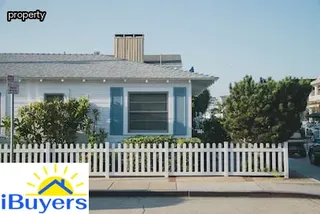
When it comes to assessing and reconciling security deposits in Georgia, both landlords and tenants should be aware of the state laws regarding how much a landlord may charge for a security deposit and what reasons they can keep it. By law, a landlord in Georgia is not allowed to charge more than two months' rent as a security deposit.
Additionally, they can only use the deposit if there is property damage that exceeds normal wear and tear. Landlords must document any damage done to the property prior to the tenant moving out and provide an itemized list of deductions within thirty days of the tenant's move-out date.
Tenants have the right to dispute deductions made from their security deposit if they feel they were charged unfairly or if they weren't provided with an itemized list. Both parties should always strive to come to an agreement without involving legal action as this will save time and money for both parties involved.
When crafting an invoice for any remaining money owed due to property damage in Georgia, it is important to ensure that all relevant information is included. Landlords and tenants should include a description of the damage, the estimated cost of repairs, any insurance coverage that may apply, the amount already paid for repairs, proof of payment for any additional costs incurred, and a contact phone number where inquiries can be made.
Additionally, a clear definition of the nature of the damages should be provided to avoid misunderstandings or default on payment. All parties should keep detailed records of all agreements and payments made in order to minimize legal disputes if necessary.
Lastly, landlords and tenants should seek professional advice from lawyers or other certified professionals who are knowledgeable about property law in Georgia.
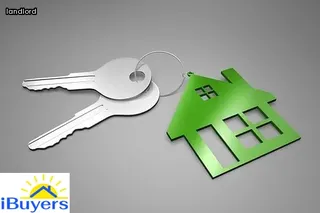
When it comes to property damage in Georgia, landlords and tenants must be aware of repair estimates for excessive property damage. The cost of repairs can vary significantly depending on the extent of the damage, the materials required for repair, and any labor costs associated with the job.
It is important for both parties to understand what their responsibilities are for covering the costs associated with repairs. Landlords should have an estimate of the cost of repairs in mind when negotiating a lease agreement with tenants.
Tenants may also need to provide an estimate if they cause extensive damage to a rental property beyond normal wear and tear. Estimates from experienced contractors should be taken into account when determining who is responsible for repair costs as they will be able to provide an accurate assessment of the required work and materials needed.
It is essential that landlords and tenants alike understand who is responsible for covering repair costs in order to avoid disputes later down the line.
When handling tenant damages after the fact in Georgia, landlords and tenants need to be aware of their rights. Landlords must provide a safe rental unit and make repairs as needed.
If a tenant causes damage, landlords may deduct the cost of repairs from the security deposit or seek reimbursement in small claims court. Tenants are responsible for any intentional or careless damage they cause to the property and can be held liable for court costs and attorney fees.
In some cases, tenants have the option to repair damages themselves instead of having their landlord do it, although this should be discussed with the landlord beforehand. Additionally, if a tenant believes that the damage was not caused by them, they should take pictures or other evidence of their claim before leaving the property.
It is important for both landlords and tenants to file an incident report with local law enforcement so that an investigation can take place into who caused the damage.
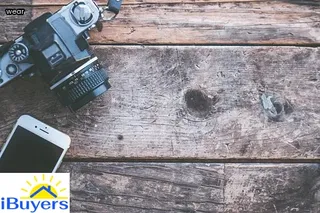
When trying to determine if property damage is routine maintenance or something that needs to be repaired, landlords and tenants in Georgia need to consider the severity of the damage and whether it was caused by normal wear and tear. Additionally, when looking at what classifies as routine maintenance, factors such as the age of the property, its condition before move-in, and whether it was caused by an accidental event should all be taken into account.
If damage appears to exceed normal wear and tear, then the landlord will likely be responsible for repairs. When assessing damages due to tenant negligence, the landlord may choose to withhold a portion of a security deposit or bill for repair costs.
It's important for both parties to understand their rights and obligations when it comes to property damage in Georgia so they can make informed decisions about how best to proceed.
In Woodstock, GA, landlords and tenants need to be aware of the laws that govern rental property. The Georgia Landlord-Tenant Act outlines the rights of both parties when it comes to renting out a property.
Under this act, landlords must ensure that their rentals meet all city and county housing regulations, including those related to maintenance, health and safety standards. Tenants have the right to request repairs from their landlord if the rental does not meet these standards.
Additionally, in accordance with Georgia law, landlords are required to inform tenants of any changes in tenancy regulations or rent increases before they take effect. In the event of property damage caused by either party during the course of a tenancy agreement, both landlords and tenants are responsible for making repairs or covering costs associated with such damages.
Furthermore, in order to protect themselves against liability in case of an accident or injury on their property, landlords must obtain a valid insurance policy that covers such incidents.
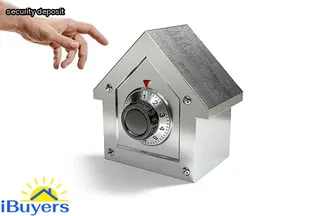
Property damage is a common issue for landlords and tenants in Georgia. To prevent excessive property damage, both parties need to understand their rights and responsibilities under the law.
Landlords should conduct regular inspections of the premises to ensure the tenant is abiding by all lease requirements and that any existing damages are documented. Tenants should be made aware of any existing damage when they move in, as well as what constitutes "normal wear and tear" versus intentional damages.
Additionally, tenants will be responsible for repairs that fall within their responsibility according to the rental agreement, such as changing lightbulbs or smoke detector batteries. Landlords can also include provisions in the lease that carefully define how much notice must be given before subleasing or having pets on the premises, since these can lead to property damage down the line.
Finally, both parties should remember that utilizing effective communication throughout their rental relationship can help them avoid costly property damage disputes in the future.
Normal wear and tear is an expected component of property damage in Georgia. Whether it's a landlord or tenant, understanding the different types of normal wear and tear helps all parties involved to avoid misunderstandings.
Common types of normal wear and tear can include scratches on walls, faded paint, loose door knobs, chipped tiles, and discontinued appliances. Landlords should be aware that tenants have the right to expect a livable environment with basic amenities; however, tenants should not expect the appearance of the property to be identical to when they first moved in.
Tenants are responsible for maintaining the condition of the rental property and are liable for intentional damages or negligence beyond normal wear and tear. Landlords in turn must understand that damages which occurred during their tenancy may not be covered by their insurance policy unless it was caused by negligence or malicious intent by their tenant.
Understanding these common types of normal wear and tear can help landlords and tenants alike prevent costly disputes over who is responsible for what kind of damage.
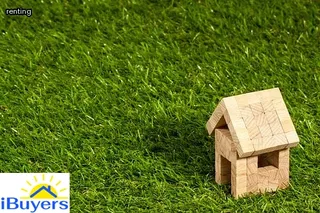
When it comes to mitigating the cost of unanticipated expenses from tenant damages, there are several solutions that landlords and tenants in Georgia should consider. Firstly, having a thorough tenant screening process is essential for avoiding costly damages in the future.
Additionally, landlords should also consider requiring a security deposit or offering additional insurance coverage to cover potential damage. Furthermore, tenants should be aware of their responsibilities and take measures to prevent any damages such as following any local laws on noise or pet regulations.
By taking these steps, both landlords and tenants can work together to prevent costly property damages in Georgia.
As a landlord in Georgia, it is important to recognize and understand your rights when it comes to repairs. In the state of Georgia, landlords are responsible for providing safe and habitable living conditions for their tenants.
This includes making sure basic amenities such as plumbing, heat, hot water, and electricity are working properly, as well as that any structural damage caused by normal wear and tear is repaired in a timely manner. If a tenant causes any property damage beyond normal wear and tear due to negligence or misuse, the landlord may be able to hold them accountable for these damages.
Landlords also have the right to deduct the cost of repair or replacement from the tenant's security deposit if they have caused damage beyond normal wear and tear. It is important to note that landlords cannot withhold rent payments or evict tenants without proper notice in order to make repairs; this is considered retaliatory behavior and can result in legal action against the landlord.

Leases and insurance policies are important documents to consider when it comes to understanding how property damage is handled in Georgia. It is essential for both landlords and tenants to understand their rights and obligations as stated in the lease agreement, including what kind of damages may be covered or not by the landlord's insurance policy.
Tenants should also be aware that they may be held responsible for certain types of repairs such as those caused by normal wear and tear or otherwise excluded from the insurance policy. To protect both parties, landlords should include language in the lease that clearly outlines what type of damages are considered the responsibility of each party, as well as who will pay for any necessary repairs.
Additionally, it is important for landlords to have adequate coverage in case of any unforeseen property damage so that they are not left with a large bill if something unexpected happens. By being aware of these details before signing a lease, both landlords and tenants can ensure that they have an understanding of their respective responsibilities when it comes to handling property damage in Georgia.
When it comes to property damage in Georgia, both landlords and tenants should be aware of their rights and responsibilities. It is important that both parties understand the financial implications of damages caused by neglect or misuse and plan accordingly.
Analyzing your budget when planning maintenance and repairs can help you determine the best course of action. Considerations such as insurance coverage, cost of materials, labor costs, and the potential for additional damages should all be taken into account.
Before making any decisions about repair or replacement, it is essential to research local laws and regulations to ensure that you are following all applicable rules. Additionally, landlords should make sure to provide tenants with clear expectations for property care and regularly inspect the property to identify potential problems before they become major issues.
By properly assessing your budget and understanding your legal obligations, you can protect your investments while minimizing costs associated with property damage in Georgia.

When it comes to finding trusted contractors and vendors for maintenance and repairs in Georgia, both landlords and tenants should be aware of their rights. It is important to ensure that any vendor you hire is licensed and insured.
You can research to make sure the contractor or vendor you are considering has a good reputation with customers online before making your final decision. Additionally, Georgia law requires that landlords provide tenants with written disclosures about any contractor or vendor who will enter their rental property for maintenance or repair work.
Tenants have the right to request information from contractors and vendors regarding their licensing and insurance status, as well as the cost of the service, payment terms, estimated timeline for completion of the work, and warranties or guarantees associated with the services provided. Landlords must also provide tenants with a list of approved contractors or vendors upon request if they do not already have one available.
Ultimately, it is important for both landlords and tenants to do their research when selecting a contractor or vendor in order to ensure that all property damage is properly handled according to Georgia law.
Documenting property damage accurately is essential for both landlords and tenants in Georgia. It is important to document any existing damage before the tenant moves into the property - this should be done through a pre-inspection report.
During the tenancy, landlords should perform periodic inspections of their rental unit to identify any emerging damage that may need to be addressed. At the end of the tenancy, landlords will want to conduct an inspection with the tenant present so that both parties can agree on the condition of the unit and document any damages that may have occurred during the tenancy.
Photographs are also a great way to document damages as they provide visual evidence of any issues. In conclusion, having a documented record of any damage can help protect both parties if there are disputes in the future.

When it comes to property damage in Georgia, landlords and tenants should consider the benefits of utilizing professional vendors for maintenance and repairs. Professional vendors can accurately assess the extent of the damage, compare prices between different materials and services, make sure that any new installations are up to code, and provide assistance in the event of an insurance claim.
Professional vendors also have access to specialized equipment needed for certain jobs and can often handle tasks that cannot be completed by a layperson. Furthermore, they have the experience necessary to ensure that repairs are done correctly so as not to cause further damage or put anyone at risk.
Utilizing professional vendors for any property damage maintenance or repair needs is a great way for landlords and tenants alike to guarantee that their investments are protected from further harm.
It is possible for landlords to sue tenants for damages in Georgia, depending on the severity of the damages and the time it took to repair them. However, before taking legal action against a tenant, landlords should first consider whether or not their rental agreement contains any specific provisions about how property damage is handled.
Generally, it is best practice for landlords to take pictures of the property both before and after a tenant moves in to document any existing damage that may have been caused by previous occupants. In addition, if damages are discovered after the tenant has moved out, landlords can pursue compensation from security deposits held on file at the outset of tenancy.
If these funds are insufficient to cover the cost of repairs, then landlords may be able to seek additional compensation from their tenant through a civil lawsuit. Furthermore, it is important for landlords to consider Georgia's landlord-tenant laws when pursuing legal action against their tenants as certain statutes may limit or prohibit certain types of damages claims.
It is also important for tenants to understand their rights under Georgia law so that they can protect themselves if they are ever faced with a lawsuit regarding property damage.

Georgia Code § 44-7-34 covers damages to property in the event of a landlord and tenant dispute. A landlord is responsible for any damage to the property caused by their negligence, while a tenant is responsible for any damage they cause to the premises.
The code also outlines procedures on how to go about filing a claim against either party and how to handle any disputes that may arise from it. In addition, tenants are required to provide written notice of any damage within seven days of discovery, and landlords must respond within 15 days of receiving notice.
Furthermore, if repairs are needed, landlords must provide an itemized list of all costs associated with the repairs within 30 days. Lastly, both parties must attempt to reach an agreement before taking legal action.
Georgia Code Section 44-7-33 is an important piece of legislation for both landlords and tenants to be aware of. It outlines the legal requirements for landlords when it comes to repair and maintenance of rental properties.
It also explains what tenants can do if a landlord fails to make necessary repairs or improvements to the property. In particular, this code section establishes that a landlord must keep the premises in a fit and habitable condition, as well as make necessary repairs in a timely manner; the law further states that if the tenant has an issue with their unit, they may withhold rent until the repairs are made.
This code section also covers compensation for damages caused by the landlord’s negligence, as well as penalties for failure to comply with its provisions. Understanding GA Code Section 44 7 33 is essential for both landlords and tenants who are living in Georgia; knowing your rights and responsibilities under this law will help ensure that any issues related to property damage can be resolved quickly and fairly.
In Georgia, landlords have up to 12 months after a tenant has moved out to charge them for damages that may have occurred during the tenancy. This is true regardless of whether or not the tenant gave proper notice of their intention to vacate the property.
In order to protect both landlords and tenants, it's important to understand how long a landlord can legally wait before charging a tenant for any damages that may have occurred while they were living in their rental unit. Landlords must provide written documentation of any damage they claim was incurred by the tenant.
If the landlord fails to do so within 12 months of when the tenant vacated, any charges made will be considered invalid and cannot be collected from the tenant. It's important for landlords and tenants in Georgia to be aware of this timeline in order to avoid potential disputes over property damage charges.